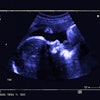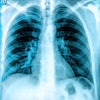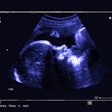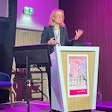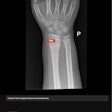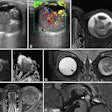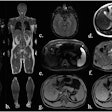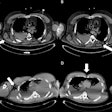GE Healthcare of Chalfont St. Giles, U.K., has agreed to pay a $23.4 million settlement to the U.S. Securities and Exchange Commission (SEC) to settle charges that GE-related companies violated the rules of the United Nations oil-for-food program in Iraq earlier in the decade.
The SEC charged that two companies, U.K. medical imaging contrast developer Amersham and water treatment firm Ionics, violated oil-for-food program rules before GE acquired them. The SEC also charged that two GE subsidiaries in Europe, OEC Medical Systems (Europa) and Marquette-Hellige, violated the rules by paying kickbacks to Iraqi government officials through third-party agents.
The SEC complaint charges that Amersham's Nycomed Imaging subsidiary entered into nine contracts between 2000 and 2002 for the provision of the contrast agents Omnipaque and Omniscan that involved the payment of kickbacks to Iraqi government officials. GE bought Amersham in 2004, after the contracts had been negotiated, the SEC said.
Nycomed paid approximately $750,000 in kickbacks on the contracts and earned about $5 million in "wrongful profits," according to the SEC. The contracts were negotiated by Nycomed's Jordanian agent and approved by the firm's salesman in Cyprus, the SEC complaint stated.
In OEC's case, the company in 2000 entered a contract to provide C-arms to the Iraqi Health Ministry, in the process making an in-kind kickback payment of $870,000 on the contract and earning a "wrongful profit" of $2.1 million. The contract was negotiated by an agent in Iraq used by both OEC and Marquette, with payments made in the form of computer equipment, medical supplies, and services, rather than cash, the SEC said.
In Marquette's case, the subsidiary entered into three contracts in the oil-for-food program for disposable electrodes, transducers, and fetal monitors to the Iraqi Health Ministry, also making payments in in-kind supplies and equipment rather than cash. Both OEC and Marquette were GE subsidiaries at the time of the transactions.
In the case of Ionics, the firm was charged with paying kickbacks to Iraqi Oil Ministry officials for water treatment equipment between 2000 and 2002. GE bought Ionics in 2005.
The SEC said that GE, Ionics, and Amersham "failed to maintain adequate systems of internal controls to detect and prevent the payments," and their accounting failed to record the proper nature of the transactions. In settling the action, the SEC ordered GE to disgorge $18.4 million in wrongful profits, pay $4.1 million in prejudgment interest, and pay a civil penalty of $1 million.
GE noted that it complied fully with the SEC investigation, and that the Amersham and Ionics allegations occurred before the company acquired these firms.
"This conduct did not meet our standards, and we believe that it is in the best interests of GE and its shareholders to resolve this matter now, without admitting or denying the allegations, and put the matter behind us," the company said in a press statement.
Related Reading
GE receives MRI grant, July 22, 2010
GE offers meaningful use IT software, July 20, 2010
GE Healthcare grows in Q2, July 16, 2010
GE relaunches Optison ultrasound contrast, July 12, 2010
iCRco, GE sign distribution deal, June 24, 2010
Copyright © 2010 AuntMinnie.com
